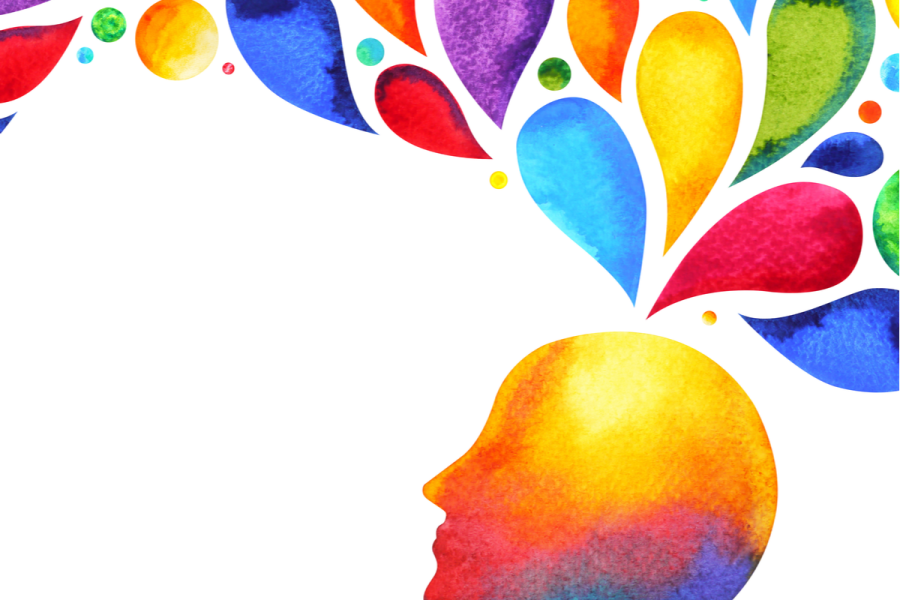Columns
Share your story
Despite knowing about the dangers of poor mental health, why is it so difficult to talk about it?
Anisha Karna
The phrase mental illness is still used in a derogatory manner in our society. We constantly refuse to give mental health the priority it deserves. There are few programmes being implemented to develop a positive attitude towards breaking the stigma against mental illness. As a result, the subject remains taboo to even talk about. The Diagnostic and Statistical Manual of Mental Disorders groups mental illness under about 20 subheadings, and rather than being binary or exclusive, it is to be thought of as a spectrum that we all live on. At one end is mental health, where we are thriving, satisfied and at ease. In the middle area are people seen to be coping, surviving or struggling. And at the other far end, sits a range of mental illnesses. Most of us move back and forth on this spectrum.
Despite knowing about the consequences and dangers of poor mental health, knowing about the pain felt when watching a family member suffer, why is it so difficult for us to talk about mental health? Why, in a society that is expanding and developing in every way possible, is it still deemed irrational to seek help? There are definitely more conversations surrounding mental health and more empathy, but a lot of us don’t know how to reach out and truly be there for people who have certain mental health concerns or psychological vulnerabilities. And, as a result, those with mental health concerns still face stigma and find themselves alone and isolated, unable to express their feelings to even close friends and family. In addition to these emotions, this sense of isolation has only increased with the ongoing coronavirus pandemic.
Don't say 'don’t worry'
According to Indian psychotherapist and counsellor Rhea Gandhi, ‘People are unable to generally talk about it because the feelings are so overwhelming, there is a lot of stigma, and friendship groups don’t necessarily allow for vulnerable conversations.’ Peers tend to become quick to judge and dismiss attempts to reach out by perceiving those suffering as being ‘weak’ or ‘dramatic’. A quick and simple reply that we all are guilty of advising is 'don’t worry' or 'everything will be fine'.
However, it has become increasingly important for us to understand that this is not how psychological distress works; having one’s feelings constantly dismissed leads to a lack of a safe place for them to share their thoughts and conclusively compels them to utterly stop talking about their problems at all. This constant scepticism from family and friends is what stops people from speaking out. These feelings then become interspersed with feelings of shame, guilt, hatred and fear. In addition, people also become afraid to share their emotional pain with others, knowing that they, too, will become overwhelmed and burdened.
To the general population, it has become a duty as there is an urgent need to understand and break the stigma present against mental health. Suicide rates are increasing at a dramatic rate, and more and more adolescents are having to rely on the aid of medication. According to a study conducted by the World Health Organisation in 2019, an estimated 264 million people globally are affected by depression, 45 million people are affected by bipolar disorder, and 20 million people are affected by schizophrenia and other psychoses. What seems even more shocking than these staggering numbers is that in low- and middle-income countries, between 76 and 85 percent of the people with mental disorders receive no treatment for their disorder.
All of us can contribute to breaking the stigma one conversation at a time. We can begin by talking about resources, including online tools, hotlines and support groups that are free of charge. Family members need to accompany each other on trips to the physician so that they too can understand what has been affecting the sufferers. It is important to discuss strategies that will help build mental strength; this can be done by practising mental strength exercises to deal with negative emotions. Share strategies that have helped you or your family with others in your community.
Understand the importance of calling out the way mental illness has been portrayed in movies and the media, and hold the entertainment industry guilty for portraying the mentally ill as dangerous. Learn to incorporate conversations about mental health into your daily life, talk to your classmates and colleagues and help the people around you understand the importance of such discussions, no matter how uncomfortable it may feel. It is important we think of mental health as a continuum of sorts, and acknowledge that we all have our ups and downs in life. Make sure your family members, friends and people around you don’t feel alone. Most importantly, share your story. Do not be afraid of the perception of others, rather understand that by sharing your experiences of your struggles and how you overcame them, your words will be words of comfort to someone who is suffering in the same way.
The time is now
With the pandemic completely changing the way we live, there have been sudden big shifts in routines, lifestyles and support systems that have been an enormous challenge to battle for not only those who already experience mental health concerns, but for everyone else. The last few months have been etched by loss and grieving; losing jobs, life goals, plans, and most lamentably, loved ones. As most of us feel distraught at the loss of life as we know it, perhaps there isn’t a better time than now to learn to take good care of ourselves and those around us emotionally.
The journey to achieving a world where everyone receives regular mental health checkups, and where there will be no stigma against mental illness is an extremely long and tedious one, but we are now in the middle of an ongoing mental illness crisis, and it is becoming more and more imperative we do something about it.




 9.6°C Kathmandu
9.6°C Kathmandu















